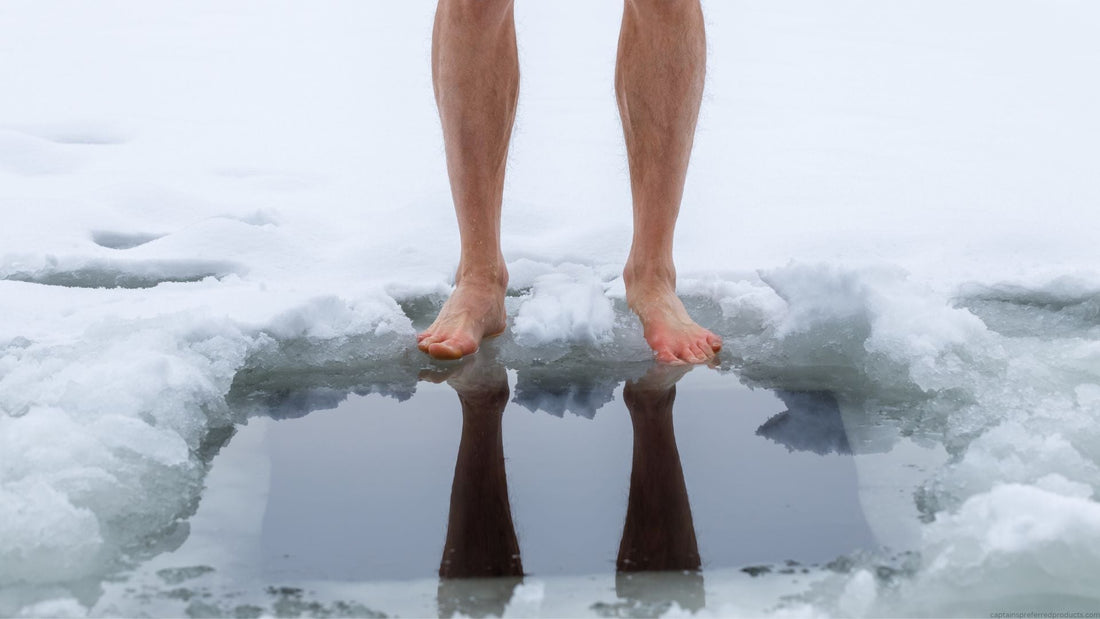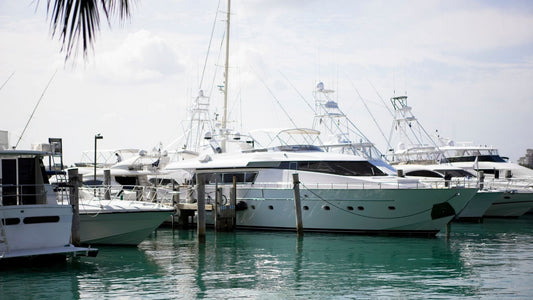
Preventing Cold Shock in Boaters: Essential Safety Measures
Nicholas HeislerShare
When you're out on the water, the last thing on your mind might be the danger of cold shock. However, this silent and often underestimated threat has claimed many lives, turning pleasant boating trips into tragedies. Cold shock, the body's immediate and involuntary response to sudden immersion in cold water, can incapacitate even the most experienced boaters. Understanding its dangers and adopting preventive measures can make all the difference.
In this comprehensive guide, we will explore what cold shock is, its physiological impacts, effective strategies for preventing it, and the importance of boating education. Whether you're a seasoned sailor or a weekend kayaker, these insights will help you stay safe and prepared.
Understanding Cold Shock
Cold shock refers to the body's rapid response to immersion in water colder than 15°C (59°F). While the water's temperature may not seem dangerously low, the sudden exposure can lead to a series of physiological reactions that are difficult to control and potentially life-threatening.
Physiological Responses
- Gasp Reflex: The initial response to cold water is a sharp, uncontrollable gasp, often followed by hyperventilation. This reaction can cause a person to inhale water if their head is submerged.
- Increased Heart Rate and Blood Pressure: Cold water causes blood vessels to constrict, increasing heart rate and blood pressure. For individuals with preexisting heart conditions, this can trigger cardiac arrest.
- Loss of Breathing Control: The rapid breathing can last for 1-3 minutes, making it difficult to keep the airway clear and avoid drowning.
Understanding these responses underscores why cold shock is so dangerous. Even strong swimmers can struggle to stay afloat during this critical period.
Risks Associated with Cold Water Immersion
Cold water immersion doesn't just stop at the initial shock. Its dangers unfold in stages, each carrying unique risks.
Immediate Risks
- Drowning: The inability to control breathing can lead to water inhalation and drowning.
- Cardiac Arrest: Sudden immersion can place extreme stress on the heart, especially for those with underlying health issues.
Short-Term Immersion Effects
Swimming Failure: Within minutes, cold water impairs muscle coordination and strength, making it nearly impossible to swim or tread water.
Long-Term Immersion Effects
Hypothermia: Prolonged exposure to cold water reduces core body temperature, leading to hypothermia. Symptoms include confusion, loss of consciousness, and eventually death.
By understanding these risks, boaters can better prepare themselves to mitigate the dangers of cold water immersion.
Preventative Measures for Boaters
Prevention is always better than cure, and this is especially true when it comes to cold shock. Simple precautions can significantly reduce the risk of an emergency.
Always Wear a Life Jacket
Life jackets are non-negotiable for every boater. In the event of an accidental fall, a life jacket keeps your head above water and helps you maintain buoyancy during the critical first moments of cold shock. Modern life jackets are lightweight and comfortable, leaving no excuse not to wear one.
Dress Appropriately
- Layered Clothing: Wear moisture-wicking base layers to keep sweat away from your skin, and add insulating layers to retain body heat.
- Wetsuits or Drysuits: In extremely cold conditions, a wetsuit or drysuit can provide additional thermal protection and prevent heat loss.
Avoid Alcohol Consumption
Alcohol impairs judgment, increases heat loss, and heightens the risk of cold shock. Save the celebratory drink for when you're safely back on land.
Conduct Safety Drills
Regular safety drills prepare everyone onboard to respond quickly and efficiently to emergencies. Practice man-overboard procedures, rehearse deploying safety equipment, and ensure all passengers know how to use flotation devices.
Stay Informed
- Check Weather Conditions: Before heading out, always check weather and water temperature forecasts.
- Know the Symptoms: Familiarize yourself with the stages of cold water immersion and the signs of hypothermia.
Emergency Response if Immersion Occurs
Despite all precautions, accidents can still happen. Knowing how to respond to cold water immersion can save lives.
Stay Calm
Panic worsens the effects of cold shock. Focus on controlling your breathing to prevent hyperventilation and conserve energy.
Minimize Movement
Excessive movement increases heat loss. If you're alone, adopt the Heat Escape Lessening Position (HELP) by crossing your arms tightly across your chest and drawing your knees up to your chest. If you're with others, huddle together to conserve body heat.
Signal for Help
Carry whistles, flares, or waterproof communication devices to attract attention and expedite rescue efforts.
Re-Board the Vessel if Possible
If the boat is nearby and stable, attempt to climb back onboard. Reducing your time in the water minimizes heat loss and the risk of hypothermia.
The Importance of Boating Education
Knowledge is one of the most effective tools in preventing cold shock and other boating-related emergencies. A well-informed boater is a safer boater.
Enroll in Boating Safety Courses
Boating safety courses provide comprehensive training on how to handle emergencies, including cold water immersion. These courses often cover topics such as navigation, weather assessment, and proper use of safety equipment.
Stay Updated on Best Practices
The world of boating safety is continually evolving. Regularly updating your knowledge ensures you're aware of the latest safety protocols and techniques.
Share Knowledge with Your Crew
If you're the most experienced person on your boat, take the time to educate your passengers about the risks of cold water immersion and how to respond in an emergency. Preparedness can save lives.
Understanding and preventing cold shock is not just about personal safety; it's about fostering a culture of responsibility and preparedness in the boating community. By wearing life jackets, dressing appropriately, avoiding risky behaviors, and staying informed, you can significantly reduce the dangers posed by cold water immersion.
Moreover, investing in boating education ensures that you and your crew are equipped with the knowledge and skills to handle emergencies effectively. A few simple precautions can mean the difference between life and death on the water.
So, the next time you head out, prioritize safety. Respect the water, prepare for the unexpected, and enjoy the adventure knowing you're ready for anything.
When it comes to keeping your fishing boat clean, look to Captains Preferred Products' boat cleaners and chemicals. Find everything you need to keep your vessel squeaky clean all season - always at the best prices.




